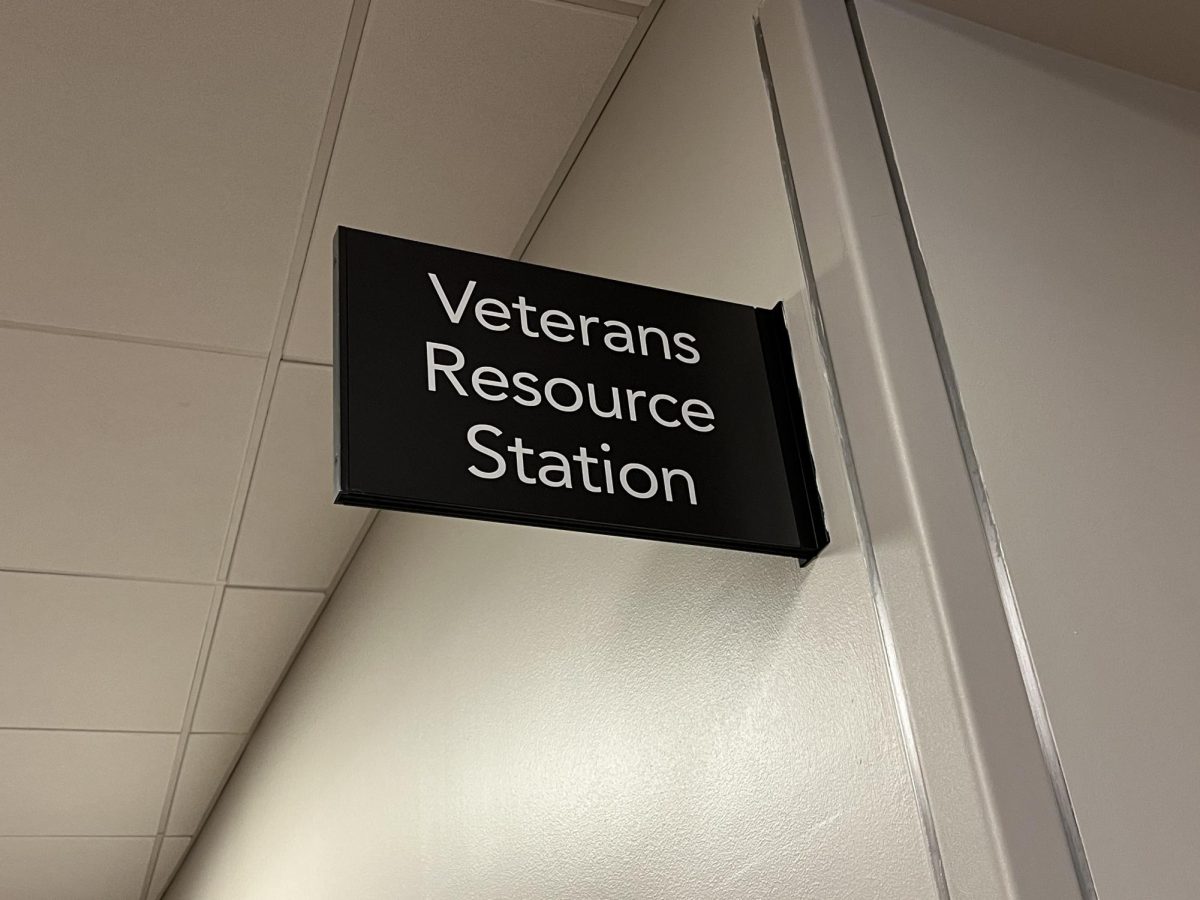
The newly formed veteran leadership minor is the only program of its kind in the region, NKU says. In fact, Rusty Mardis, coordinator of the Veterans Resource Station, said he hasn’t found a program in the nation that matches it.
“I haven’t found really anybody in the nation that will offer anything similar,” said Mardis.
The veteran leadership minor is a 21-credit hour minor where veterans can convert their military training time to credit hours. This minor falls under the history department. The idea is that the military training time and experience is living history or living a credit, said Mardis. Veterans benefit from this minor since it accelerates their path toward graduation, given that a minor is required for graduation at NKU, he said.
“You could potentially come in here already [having] a minor completed as you work on your other programs,” said Mardis. “We did research and on average, most students will come with 15-18 credit hours already established towards this minor so they may need one or two classes to finish up that additional minor, which would save them time and benefits.”
In this minor, each individual will work one-on-one with a dedicated advisor to work through their military training to make sure it matches up with the minor requirements, said Mardis. One interesting class that it offers is Leading with Emotional Intelligence (LDR 320), he said.
Most higher education institutions give veterans a lot of credit hours but only issue a certain amount of these credits towards their degree, said Mardis. This may change their status, but it doesn’t eliminate much of the time they will spend completing their degree.
A lot of universities will offer a military science minor, which is usually attached to a Reserve Officer Training Corps (ROTC) unit, but it’s a different focus than the veteran leadership minor, said Mardis. “You go through those training programs through college to get that minor, this one is what you’ve already done from your life experience.”
About 75% of active duty military will choose higher education after they get out according to the Veterans Affairs statistics. “The reason for that is that almost all active military will come with some type of educational benefit that they can use in college or trade school,” said Mardis.
According to a Syracuse University study, 92% of veterans “agreed or agreed strongly that higher education is central to a successful transition from military to civilian life.”
Research shows that 76% of veterans struggle in their transition period from military to civilian life. Other research suggests that 78% of post-9/11 veterans feel isolated or alone.
“Offering this minor is just another stepping stone to be that support and provide that aid while giving them college credit that they already earned that they never received in the past,” said Mardis.
This minor will be a great asset to the students’ resumes and make them stand out, said Audrey Rowland, a veteran studying criminal justice. The name of the minor itself shows that they are veterans with some leadership experience which can help them with jobs, she said.
Regardless of a person’s field, having the veteran leadership minor will help move an individual up faster in terms of leadership roles, said Wyatt Atcher, an NKU student planning to enroll in the veteran leadership minor.
“It’s a great opportunity to go out and start your degree, and you’ll have a head start because you can already have the minor finished and then obviously, pursue your bachelor’s degree,” said Rowland. Coming to NKU and the Veterans Resource Station will make the transition easier and more enjoyable, she said.
“Even if you want a different minor, you can still get this one and do the other,” said Atcher.
Another important aspect is having a Veterans Resource Station (VRS) and athletes lounge where veterans can come in at any time, play games, have some free snacks and drinks and spend time with people going through the same thing, said Mardis.
If veterans have long-term engagement, their well-being rate increases by 21% within the first three months and by 79% after three months of engagement, according to the American Warrior Partnership.
“The key is having that at-ease lounge, having a VRS, but also offer them something that’s worthwhile to come to school for. That’s where the veteran leadership minor comes into play,” said Mardis.
“I really like coming to the Veterans Resource Station, meeting everyone and getting to know people here, and it makes the college experience feel easier just relating to a lot of people here,” said Rowland. The VRS made her feel comfortable and sharing their stories helps create a strong bond between them, she said.

